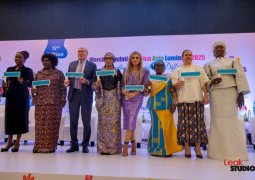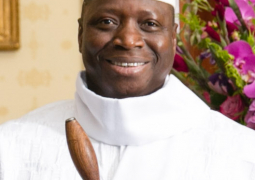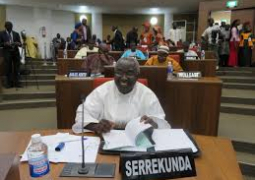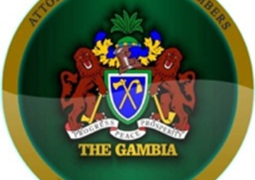
This meeting was part of the process of developing and implementing a national energy efficiency (EE) program with support of the World Bank Group under the Public-Private Infrastructure Advisory Facility (PPIAF) and Energy Sector Management Assistance Program (ESMAP).
As part of Pillar II of the national energy efficiency (EE) program on the “enabling framework for implementation of the energy efficiency strategy, including capacity building” which seeks to develop the institutional arrangements, governance framework, funding mechanism (for the dedicated energy efficiency capacity, and for the energy efficiency activities themselves), and coordination mechanism needed to implement and evaluate the National Energy Efficiency Strategy (Pillar I), a consulting firm (ECA- Economic Consulting Associates) has been recruited to map out the development of EE enabling framework.
“The main objective of ECA's assignment is to create the enabling frameworks for the implementation of the NEES for The Gambia. It seeks to develop the institutional arrangements, governance framework and conduct the needed analysis to properly incorporate the gender dimension and structure potential funding mechanisms and capacity building support to facilitate the implementation of the NEES,” said Mansata Darboe-Touray, DPS, Ministry of Petroleum and Energy.
She added that currently, the Gambia’s energy sector is in the middle of a major transition, noting that since the Gambia entered a new political chapter in 2017, efforts are ongoing to improve electricity supply.
“The utility company NAWEC has made significant strides to improve operational efficiency and financial performance, and is currently in the middle of a major organizational restructuring.”
According to her, the electricity roadmap 2021-2040 (financed by the World Bank) is the primary planning instrument, and a strategic reference point for all stakeholders in the energy sector.
“It embodies the Gambian leader’s ambition to attain universal access to energy by 2025, and also exploring low-cost options for power generation so that NAWEC becomes an efficient and financially sustainable power utility.”
For his part, Matarr Touray, representative of World Bank said the consultation dialogue represents another step following months of tedious work from all partners and stakeholders
“Its topical nature is further compounded by recent developments in relation to tariffs reflecting external circumstances on generation costs. The framework law and other EE initiatives allow for demand side management to further reduce the energy burden on consumers.”
He noted that this comes with the caveat that “the cheapest energy is energy we don’t use.”
According to the World Bank representative, these documents will further pave the way for the Gambia towards achieving the UN Sustainable Development Goal 7 with the target of doubling the rate of EE improvement by 2030.
Read Other Articles In Headlines





